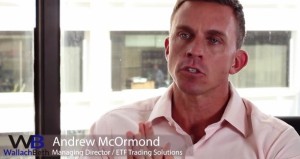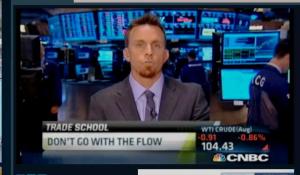MarketsMuse update on the downtick in oil prices and impact on high yield bond ETFs, including energy-sectory junk bonds includes extract from Institutional Investor Jan 7 coverage by Andrew Barber.
MarketsMuse editor note: The recent implosion of crude oil prices has triggered a conundrum for almost every investment analyst who prides themself on pontificating the domino effect impact on the broad universe of market sectors and asset classes. Much has been said about the how, when and where the trickle-down effect of the lower oil prices will effect corporate balance sheets, and in particular, those with a boatload of outstanding debt. For high-grade corporate debt issuers, some believe lower energy costs bode will. For high yield bond issuers (companies that typically include energy industry players), the jury remains out for the most part. Experts that MarketsMuse has spoken with believe that if US drillers and frakers cut back on operations and reduce overhead quickly, it will help stem the burn that inevitably results from manufacturing a product that costs almost as much (if not more) to make as it what customers pay for it. Then again, as the supply begins to wane consequent to production cutbacks, market forces will, in theory, cause prices to rise..and those companies will be back in the black before having to sweat too much about interest payments on outstanding debt.
![]()
II’s coverage on the topic is framed nicely via this extract:
 The impact of rising yield for energy producers on high yield markets has also spilled over into the exchange-traded funds and closed-end funds. “ETFs create a simple wrapper for investors to modify easily their exposure to high yield fixed income markets” says Andy McOrmond, managing director at WallachBeth Capital, a New York-based institutional brokerage that focuses on ETF and portfolio trading. Mohit Bajaj, director of ETF trading solutions, also at WallachBeth, notes that despite the volatility injected into the market for high-yield exchanged-traded products during the recent oil sell-off, short interest has remained relatively stable and borrows have been easily obtainable. Bajaj attritubes this stability to a maturing institutional appreciation of exchange-traded fund products.
The impact of rising yield for energy producers on high yield markets has also spilled over into the exchange-traded funds and closed-end funds. “ETFs create a simple wrapper for investors to modify easily their exposure to high yield fixed income markets” says Andy McOrmond, managing director at WallachBeth Capital, a New York-based institutional brokerage that focuses on ETF and portfolio trading. Mohit Bajaj, director of ETF trading solutions, also at WallachBeth, notes that despite the volatility injected into the market for high-yield exchanged-traded products during the recent oil sell-off, short interest has remained relatively stable and borrows have been easily obtainable. Bajaj attritubes this stability to a maturing institutional appreciation of exchange-traded fund products.
For the full article from II, please click here







